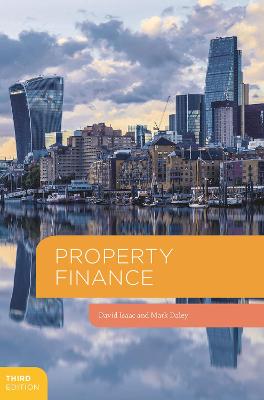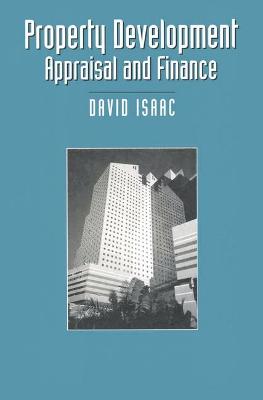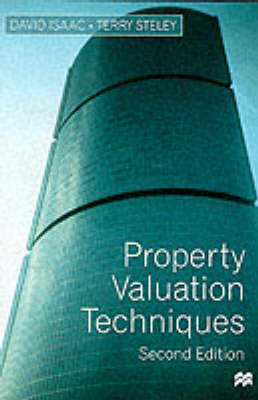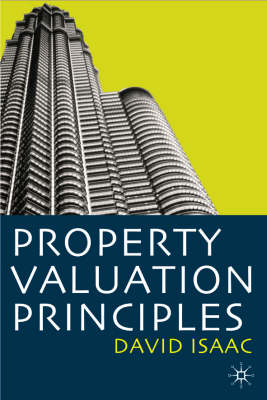Building and Surveying
6 total works
Property Finance is an accessible and comprehensive guide to the field of property finance, linking the practicalities of property and construction with an understanding of core financial structures and concepts. It introduces the key components of real estate investment and development cycles, and explores the interconnected roles of the financial services industry, property companies, joint ventures, banks, and real estate developers. For this edition, a new co-author, Mark Daley, has been brought on board. He brings a wealth of knowledge and teaching experience to this well-established textbook.
An ideal book for students undertaking real estate or construction-related degrees, it is also useful for personal study or further information and help in this particular area of finance.
An ideal book for students undertaking real estate or construction-related degrees, it is also useful for personal study or further information and help in this particular area of finance.
This book provides an overview to the context of property development so that students and professionals can examine the stages of development in the process. The stages are developed from initial consideration to site finding, general appraisal, valuation, funding, construction and marketing. In providing the context for development the author is able to focus on two key areas of the process: appraisal and finance. New ideas, concepts and techniques are introduced in considering the valuation of development properties, cash flow approaches, computer applications and risk analysis. In the area of finance, up to date information on the sources of development finance and the criteria for lending is provided. Project-based funding is examined in detail, as well as corporate funding and institutional investors. Joint venture arrangements and property companies are also discussed. A final section of the text deals with financial management. The book will appeal to a wide readership among students and practitioners in the built environment, especially those studying or involved in estate management, property funding and development, planning, surveying and construction.
This handbook is concerned with the application of alternative techniques for property valuation and appraisal. After an initial discussion of new approaches to valuation methods, the authors describe traditional approaches and provide a critique of them. Subsequent chapters are devoted to developing models based on cash flow approaches which can aid the appraisal of property investments. Finance theory and computer technology are applied to the analysis. In this edition, a chapter dealing with contemporary methods of valuation has been added and those on risk, computer models and the use of spreadsheets have been radically extended. An introduction, explaining the aims and purpose, has been added to each chapter, with a summary of key words where appropriate.
This work brings together three aspects of property development - strategies for investment, markets and appraisals. It considers research in these areas and provides a commentary on the individual and portfolio analysis of property investments. By using statistics and graphs and analyzing the latest techniques, the book summarizes the present state of play in the property investment markets, the sectors and the investors. The author outlines the developments in investment and finance theory that have had such an impact on the property investment sector.
This title provides a basic introduction to valuation for undergraduate students studying surveying. It covers five areas of study: valuation and markets; methods of valuation; the investment method in detail; taxation and statutory valuations; and the development appraisal and finance. As a result of studying from this text, students should be able to understand property appraisal in the context of property markets, understand and use the principle methods of valuation, understand the application of valuations in a variety of investment and development contexta, and begin to relate techniques of appraisal to a wider economic context related to property development, finance and the financial management of property projects.
Property Valuation Principles. Building and Surveying Series.
by David Isaac
Published 12 November 2001





